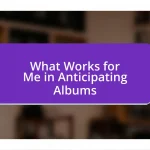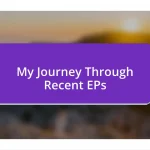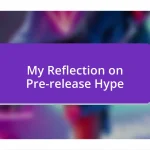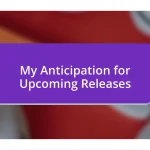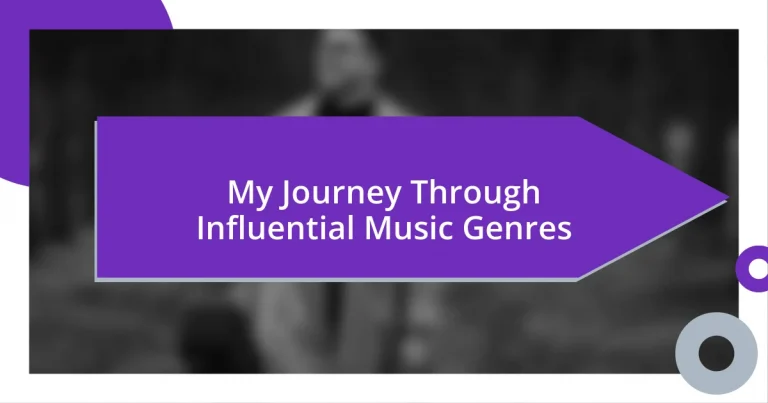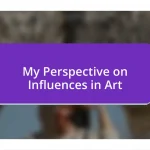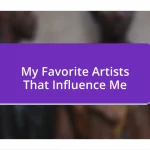Key takeaways:
- Music genres shape our emotions and identities, connecting individuals to personal and collective stories.
- Genres like punk, reggae, and rap impact societal norms, promoting change and providing a voice for marginalized communities.
- Personal experiences with music, from classic rock to electronic, highlight its evolving nature and profound influence on life’s journey.
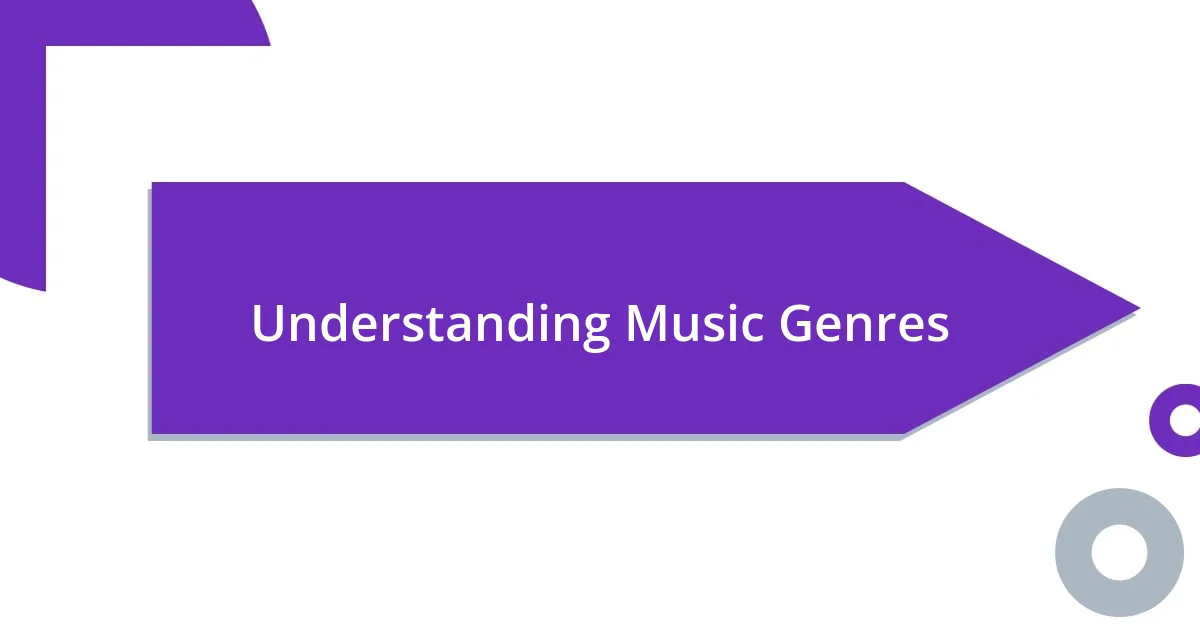
Understanding Music Genres
Music genres serve as the guiding framework for our listening experiences, categorizing diverse sounds and styles into digestible segments. I still remember the first time I stumbled upon jazz; its improvisational nature felt like a conversation between musicians. Have you ever had a moment when a song just pulled you in, making you feel like you were part of something larger?
As I explored the world of rock music, I felt an undeniable sense of rebellion. The raw energy of a classic guitar riff always made me feel alive, as if the music was echoing the struggles and passions of my own life. Isn’t it fascinating how a single genre can evoke such powerful emotions and memories for each of us?
Understanding music genres goes beyond mere classification; it’s about connecting with feelings and stories. For instance, when I turned to hip-hop, it opened my eyes to an entire narrative of resilience and community. Can you remember a song that made you reflect on your own journey? That connection can be profound.
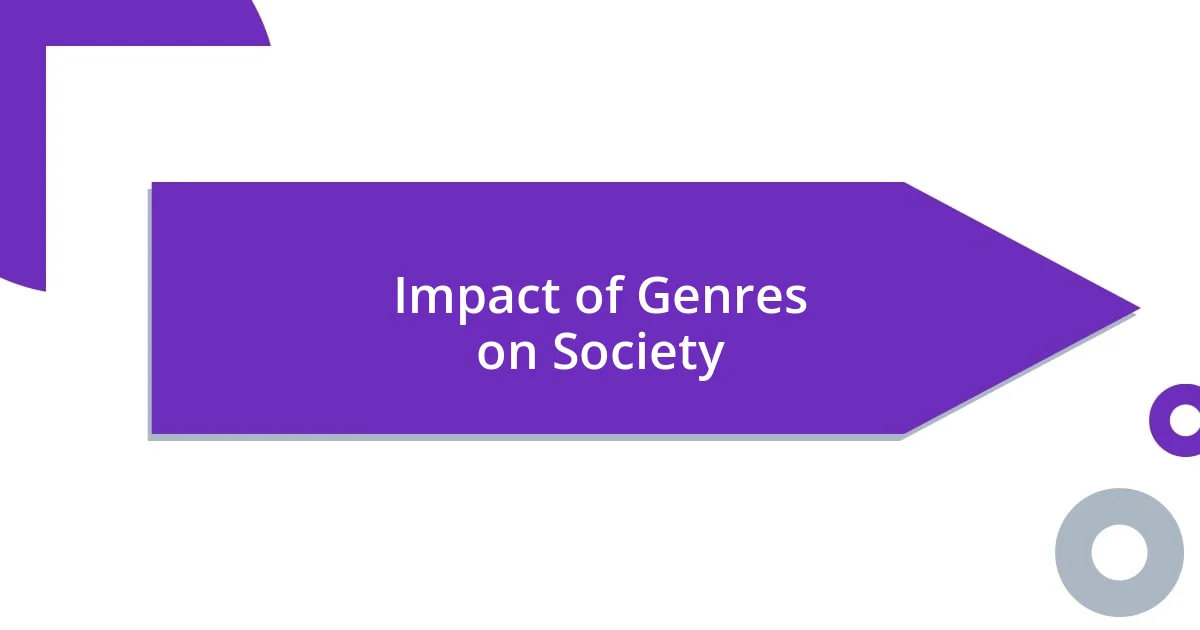
Impact of Genres on Society
Music genres have the power to shape societal norms and foster change. I vividly recall tuning into punk rock for the first time—it was exhilarating, filled with an attitude that challenged the status quo. It was more than just the loud guitars; the lyrics resonated with a generation that craved authenticity and questioned societal expectations. Have you ever felt music push you to rethink what you believe?
As I delved deeper into reggae, I experienced a cultural awakening. The way it highlighted issues of justice and equality was not just uplifting but also a reminder of the power of collective voices. I remember sitting around a campfire with friends, listening to Bob Marley, and feeling a shared sense of hope and unity. That’s the beauty of genres; they can mobilize communities and elevate important conversations.
The impact of music genres on society can be seen through their ability to bridge gaps and create dialogues where none existed before. I think about the influence of rap as a storytelling medium. It brought real-life experiences to the forefront, allowing voices from marginalized communities to be heard. Have you ever connected with a song that challenged your perspective? It’s in those moments that music transcends enjoyment, touching on the very fabric of who we are.
| Genre | Societal Impact |
|---|---|
| Punk Rock | Challenges societal norms and fosters authenticity. |
| Reggae | Promotes justice and unity among communities. |
| Rap | Provides a voice to marginalized communities and real-life experiences. |
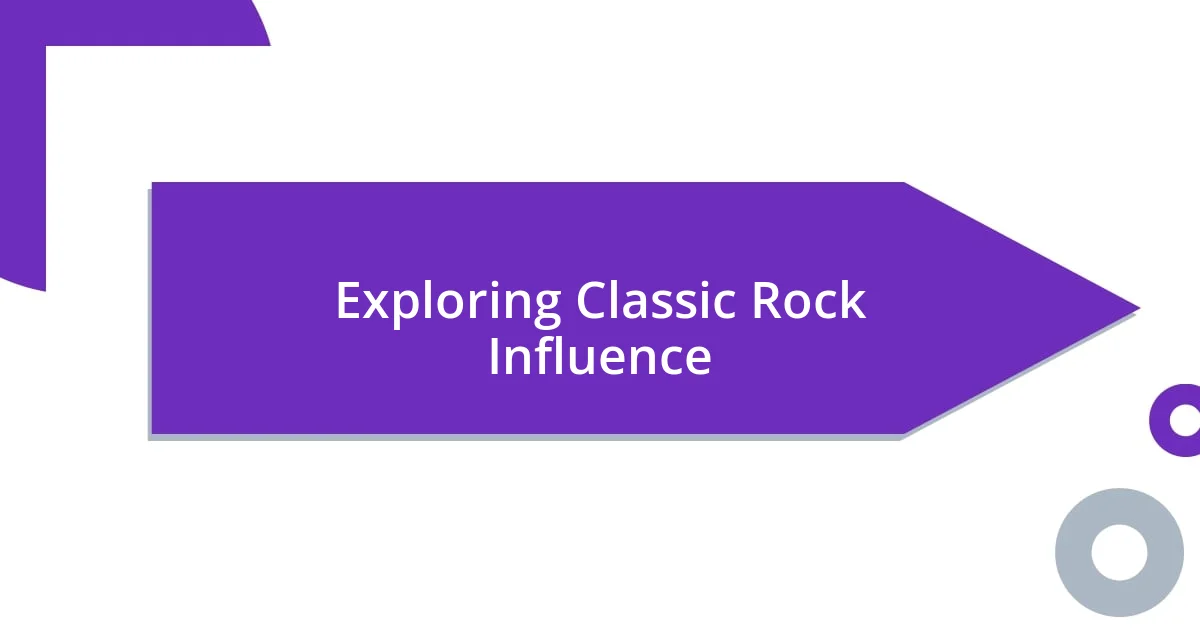
Exploring Classic Rock Influence
Classic rock has always struck a chord with me, resonating through generations with its electrifying energy and lyrical authenticity. I’ll never forget the first time I cranked up Led Zeppelin’s “Stairway to Heaven.” The intricate guitar solos and evocative lyrics transported me to a different place, awakening my appreciation for not just music, but storytelling. It was as if the universe conspired for me to discover this genre, blending my thoughts and emotions in a way I hadn’t experienced before.
When I listen to classic rock, I often reflect on its ability to shape not only individual experiences but also cultural sentiments. Here’s how classic rock made its mark on society:
- Rebellion and Freedom: Songs like “Born to Be Wild” became anthems of youth and escapism, encouraging listeners to challenge societal norms.
- Social Commentary: Tracks such as “Fortunate Son” provided pointed critiques of war and privilege, fostering awareness and dialogue.
- Cultural Movement: Festivals like Woodstock became pivotal moments in history, uniting people through the power of music and shared values.
Classic rock isn’t just noise; it’s a profound expression of human experience that I find endlessly inspiring. The way it intertwines personal stories with broader societal struggles creates a unique bond between the artist and the listener that remains timeless.
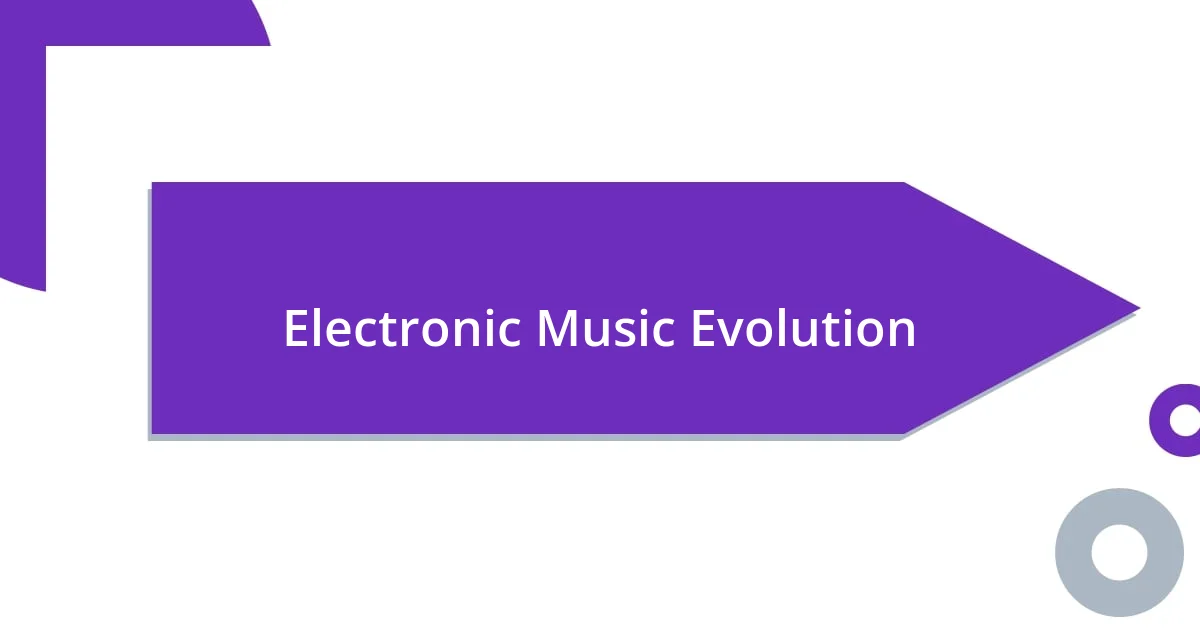
Electronic Music Evolution
Electronic music has undergone a fascinating evolution, transforming from experimental sounds in the late 1940s to the vibrant genres we see today. For me, discovering early electronic tracks felt like stepping into a futuristic world. I remember stumbling upon Kraftwerk’s “Autobahn” and feeling an exhilarating blend of technology with sound—like the music was a glimpse into a new era. Have you ever experienced a genre that made you feel like you were peering into the future?
The rise of house and techno in the 1980s really captured my attention. I think back to when I first attended an underground rave, surrounded by pulsating beats and neon lights, which created an atmosphere of pure liberation. It was exhilarating to see how these tracks merged with the energy of the crowd, creating a shared experience that transcended boundaries. Each drop seemed to sync with the collective heartbeat of everyone around me—how incredible is it that music can forge such strong connections?
As genres like dubstep and trance began to emerge, the complexity of electronic music grew even more evident. I recall the first time I heard Skrillex; the intricate layering of sounds and the heavy bass drops left me in awe. It made me rethink the very definition of music itself. How can a simple beat evoke so many emotions and invite participation? This evolution speaks not only to technological advancements but also to our ever-changing cultural landscape, where music continues to mirror societal shifts and personal experiences.
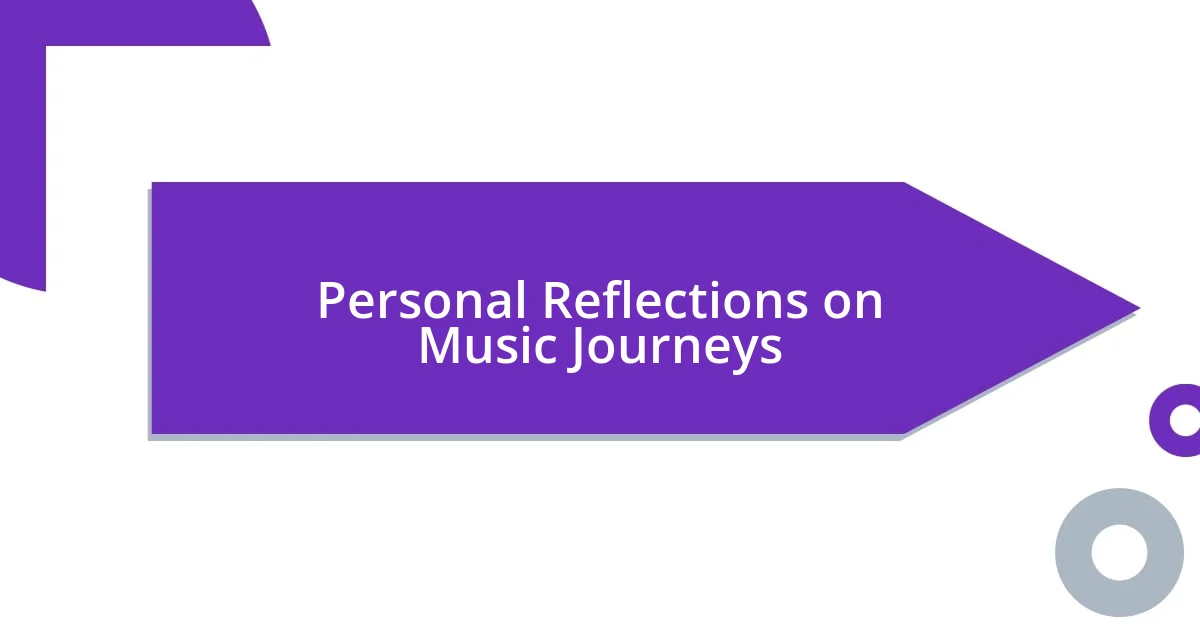
Personal Reflections on Music Journeys
Reflecting on my music journey, I often find myself drawn back to the moments that sparked my passion. I remember listening to a record by The Beatles for the first time while sitting on my bedroom floor, completely enveloped in their harmonies. It felt like each note was speaking directly to me, making me realize the profound impact music can have on our emotions and memories. Isn’t it remarkable how a simple melody can transport us back in time, evoking feelings and memories we thought were long forgotten?
As I explored different genres, I noticed how each one resonated with unique phases of my life. For example, during a particularly challenging time, I found solace in the raw honesty of folk music. I vividly remember singing along to Bob Dylan’s “Blowin’ in the Wind” during long, introspective walks. It was through those lyrics that I felt a sense of connection to struggles shared by countless others. Don’t you think it’s powerful how music can offer comfort and companionship when we need it most?
Each genre I embraced was like a chapter in my story, rich with lessons and insights. When I discovered jazz, it opened up a world of improvisation that mirrored the unpredictability of life itself. Attending a live jazz performance left me mesmerized, watching skilled musicians weave their individual styles into a seamless tapestry of sound. The spontaneity of it all made me ponder—how often do we allow ourselves to be spontaneous in our own lives? For me, music isn’t simply a backdrop; it’s an integral part of my journey, shaping my identity and guiding my reflections along the way.

